Asynchronous Book Club: All Our Ordinary Stories
Teresa Wong takes us on a multigenerational family odyssey
We were lucky to get an advance copy of All Our Ordinary Stories, which is officially released on September 24. We previously interviewed Teresa Wong as part of our monthly interview series and discussed her book Dear Scarlet in our presentation “Motherhood as Crisis: Women Comics Creators Confront Identities in Flux” at the University of Florida (a mini synopsis of this presentation can be found here). We hope you will grab a copy and some friends for this edition of our book club series. We have some questions to get your book club discussion going, and a creative prompt based on the book. As always, we would love to know what you thought about All Our Ordinary Stories, and please do share if you make a comic about your childhood activity!
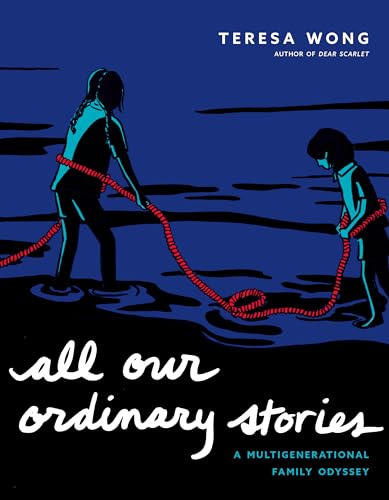
It’s tempting to compare Wong’s work to other graphic memoirs about immigration, identity, and family connections, such as Tessa Hull’s Feeding Ghosts, I was Their American Dream by Malaka Gharib or Belonging by Nora Krug. But All Our Ordinary Stories is a wholly original work, unlike nothing we’ve read before.
Wong doesn’t dwell on the aftermath of difficult events; instead, she presents the inciting incidents with little commentary. This approach reflects a family trait: the ability to endure hardship without making a fuss. Both of her parents, born in China and teenagers during Mao’s Great Leap Forward, escaped reeducation camps and made a harrowing journey to freedom in Hong Kong, and later, Canada. Yet, neither of them want to discuss these experiences or make a big deal out of them. This silence makes Teresa’s effort to uncover their stories and understand her family history—and her relationships with her parents—challenging.
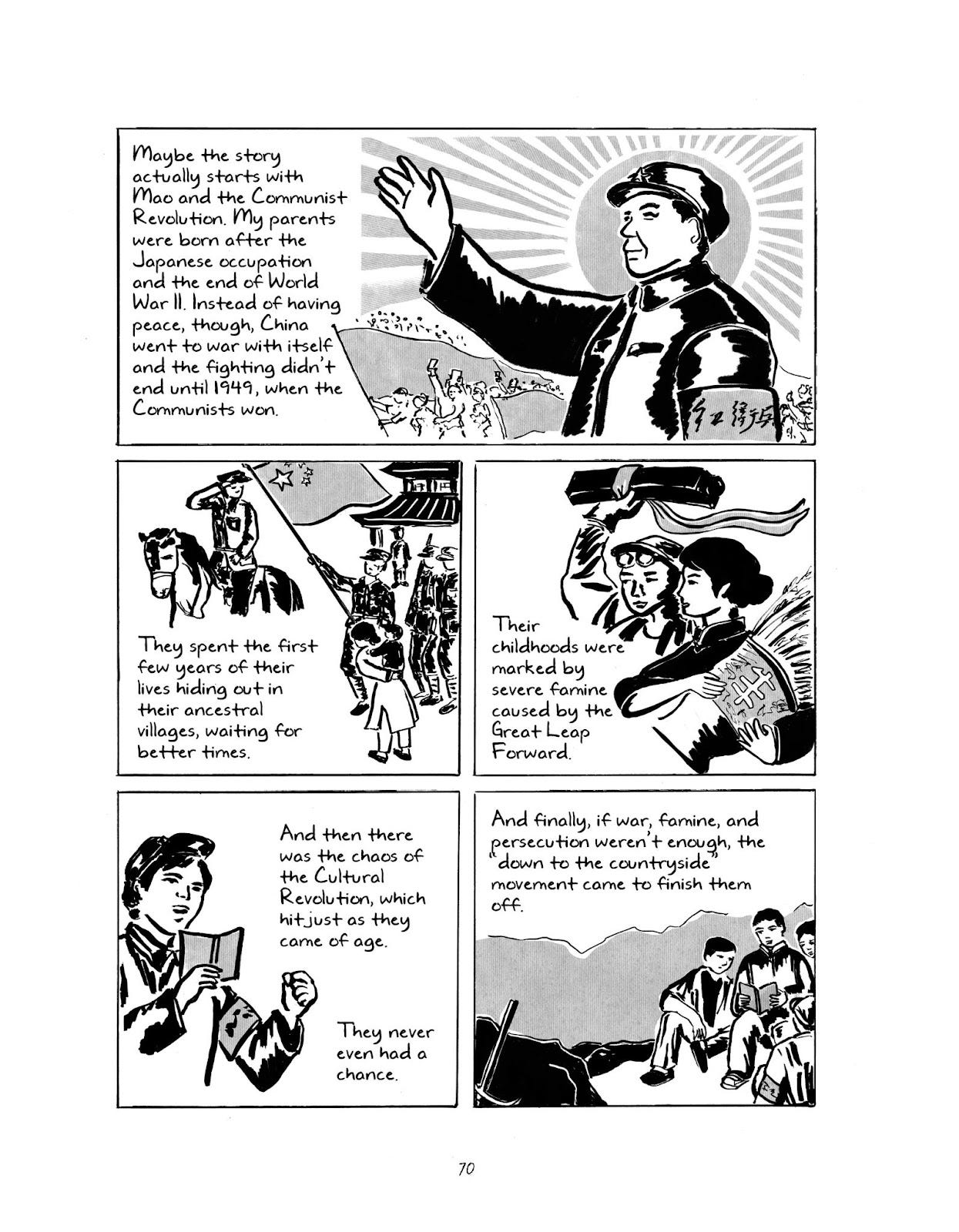
This reflective and personal exploration of Wong’s relationship with her parents, is reminiscent, too, of Fun Home, in its excavation of family ties and identity, but Wong’s telling is quieter, making space for the audience to inhabit Teresa’s character. The expectation of so many memoirs is that they will be tell-alls, airing family secrets and behaviors, much in the vein of Mary Karr’s The Liars’ Club, which sparked the memoir movement in the 1990s. All Our Ordinary Stories spirals around the complex process of understanding one's parents, particularly as a child of immigrants, centering a different kind of conflict for a memoir. A recurring refrain, “this is not the beginning, but it is a beginning,” echoes Wong’s exploration of identity and connection.
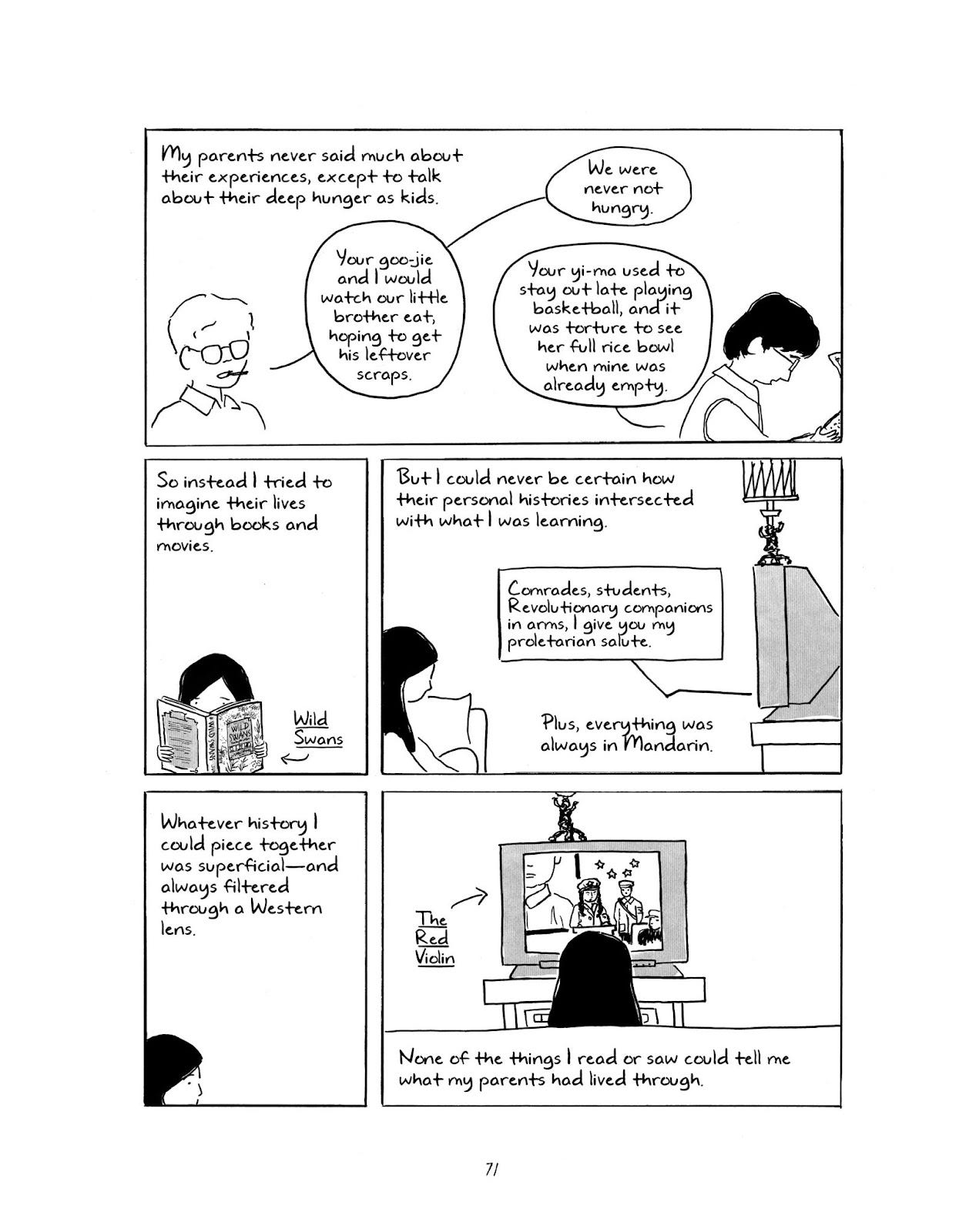
The book is divided into several sections—Mother Tongue, Mother Land, Forefathers, and Mother Nature—each containing short comics on various aspects of family and cultural history. Wong effectively conveys a sense of disconnection. In one chapter, she tours Guangzhou with her parents, but is unable to understand the tour guide, emphasizing the distance between her and her cultural roots. The narrative seems to accept the unknowability of certain aspects of her parents’ lives, encapsulated in the phrase, “history is not legacy.”
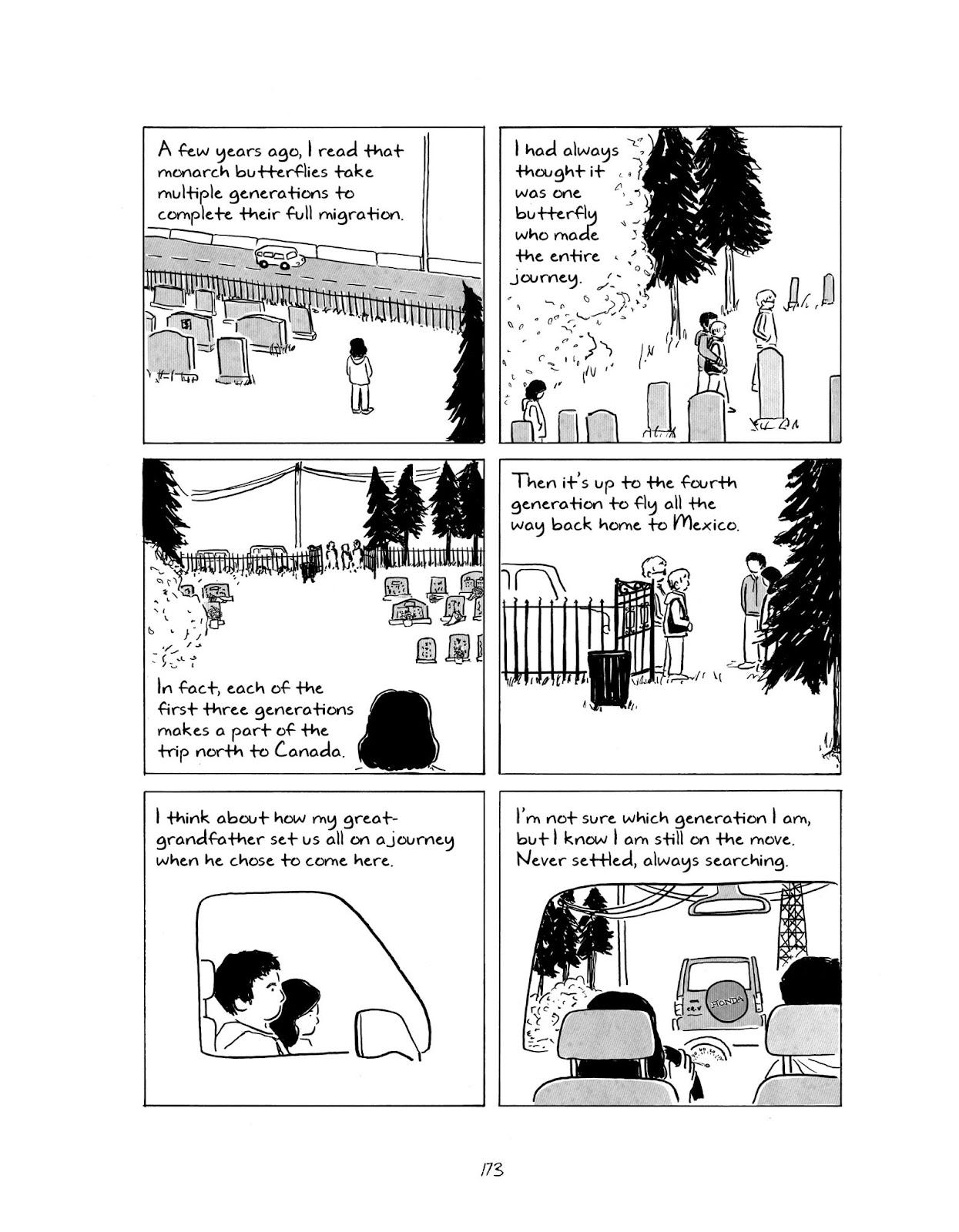
The artwork in the book, particularly the night forest scenes, is striking. Often, a mood of isolation comes through the use of white space. The tension of her yearning comes through the use of minimalism and space; characters are often portrayed as isolated within the panel. Wong draws her research throughout, including the audience in her research process.
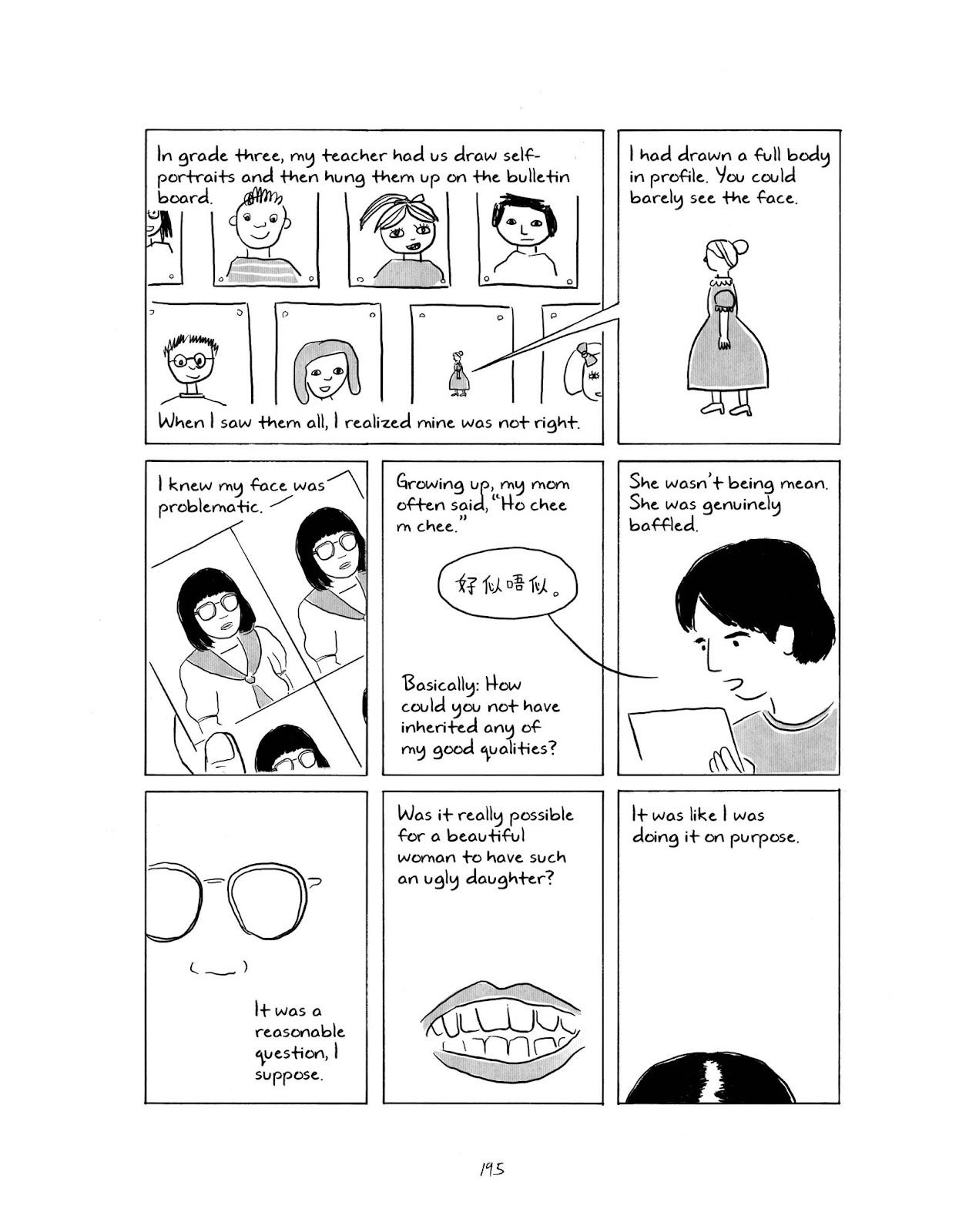
Ultimately, All Our Ordinary Stories is a poignant exploration of family, culture, and the things we may never fully understand about our parents. While we get to know Wong’s mother, father, and herself within the context of immigration, the book leaves readers with a sense of longing for the stories that were never shared.
We keep coming back to the refrain of “this is not the beginning, but it is a beginning” to start new sections. How does the structure of this book inform your understanding of the memoir?
Wong shows how language has the power to exclude or include people–was there a particularly resonant example of this experience in All Our Ordinary Stories?
Is there one story in particular that you think encapsulates the conflict and themes in this segmented memoir?
How do you understand the role of the extended family members in the stories?
How does Wong frame panels to accentuate certain emotions? To create rhythm?
What do you think this book says about the relationship between storytelling and trauma?
Creative Activity
Think about an activity you did as a child. Why did you do this activity? Was it something your parents wanted? A cultural obligation? Something you wanted to do for a specific reason? Were there any obstacles or challenges that you had to overcome in order to perform this activity?
Brainstorm about these questions and write your answers from your current perspective as an older person–try to be compassionate to the child version of yourself as you write.
Rough out a two-page comic about your activity.


